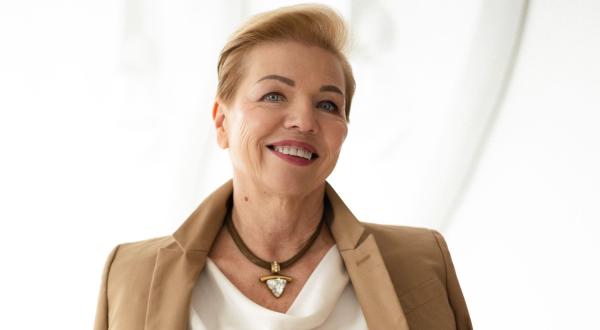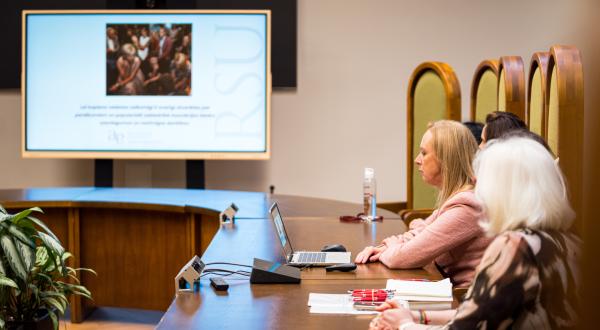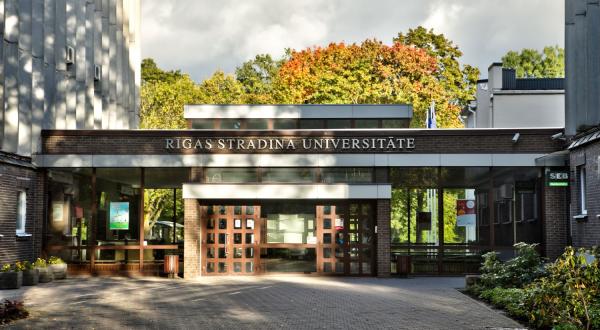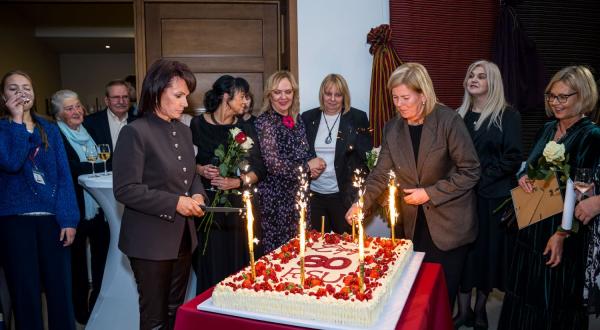Laboratory of Anthropology
Laboratory of Anthropology section on RSU Research Portal
Professor J. Vētra has nurtured the idea of anthropological studies in his thoughts and works within the framework of AAI in Latvia, and the AAI Department of Anthropology Studies was created under his leadership. Professor himself also started to supervise the first doctoral theses in anthropology after a very long break. In 2005, this study department was abolished and the Laboratory of Anthropology was created, and Associate Professor Silvija Umbraško became the head of it.
Overall, seven doctoral theses were prepared and defended in the laboratory from 2002 to 2016, including the thesis of S. Umbraško. Of those who defended, I. Duļevska, Dz. Kažoka, S. Umbraško, A. Oginska, Z. Cēderštrēma continued to work in or became employees of AAI. O. Koļesova and V. Skļarēvičs became RSU employees. The thesis written by O. Koļesova in AAI has become the basis for a chapter in the Obstetrics book edited by D. Rezeberga issued in 2016, but the joint Anthropology book of S. Umbraško and I. Duļevska has already been submitted for publishing to the RSU publishing house.
Topics of the Laboratory of Anthropology cover the following areas of research: physical development of newborns, babies, pre-school and school age children; development of gender characteristics of girls and boys; posture and foot parameters of pupils; biological age of a woman; physical development of Latvian soldiers, analysis of anthropometric parameters and their comparison with equivalent studies at the beginning of the century; development of physical development standards for Latvian children and youths.
Anthropometric measurements are a good indicator of productivity of the laboratory. The team of the laboratory helped the candidates for the doctoral degree to make them: within the scope of the work of I. Duļevska, 1335 girls were measured, for the work of V. Skļarēvičs – 741 children were examined, for the work of S. Umbraško – 1700 (888 girls and 812 boys), for the work of Dz. Kažoka – 873 women aged 18 to 74 were examined, for the work of A. Oginska – 503 newborns were examined, for the work of Z. Cēderštrēma – 1359 boys aged 7 to 18 were examined, for the work of O. Koļesova – 427 persons (230 women and 197 men) aged 18 to 84 were examined. If we look by age group, the laboratory helped to take measurements of a total of 6572 persons: within the scope of development doctoral theses and developments, laboratory technicians took anthropometric measurements of: 2117 pre-school age children (for physicians V. Skļarevičs, R. Žagare, A. Greitāne, G. Skruze and A. Jašinska); 2521 school-age children and youths (for physicians S. Umbraško, Z. Cēderštrēma); 1934 women and men (for physicians Dz. Kažoka, A. Balode, A. Geriņa-Bērziņa, J. Stankeviča).
The longitudinal project of child measurements of Dr. med. A. Oginska is ongoing in the laboratory, within the framework of which laboratory technicians have taken anthropometric measurements of 503 newborns, examining them repeatedly before the age of one (1940). The following numbers of children from the study of A. Oginska continue to be measured once a year: 292 two-year olds, 279 three-year olds, 264 four-years olds, 246 five-year olds, 228 six-year olds, 222 seven-year olds, 216 eight-year olds, 203 nine-year olds, and 197 ten-year old children. The study will continue until the children will reach the age of 18, and this will be the only study of its kind, because it will demonstrate changes in anthropometric indicators of children from their birth until they reach their physical maturity.
The laboratory participated in six cooperation projects (3123 interested persons were measured, 92 were trained) and in two contract works (4502 children and adolescents were measured).
1394 respondents were measured for Master’s theses. 1857 respondents were measured for Bachelor’s theses. For research works of students, technicians of the Laboratory of Anthropology trained and took anthropometric measurements together with students from 396 respondents.
Subject B study programme Anthropology was developed and is operating on the basis of the laboratory for 2nd year students of the Faculty of Medicine, including also students of the International Student Department (827 students were trained to take anthropometric measurements). Two programmes are offered at the Faculty of Continuing Education for physicians, rehabilitologists, medical assistants and nurses on physical development, growth, sexual development and body posture (43 interested persons were trained to take anthropological measurements).
Employees
Laboratory of Anthropology
Related news
 When learning turns into collaboration: birthday conversation with Prof. Tatjana KoķeAnniversaries, RSU History
When learning turns into collaboration: birthday conversation with Prof. Tatjana KoķeAnniversaries, RSU History Towards a stronger alumni community: RSU Alumni Association strategy for the next five yearsRSU Alumni
Towards a stronger alumni community: RSU Alumni Association strategy for the next five yearsRSU Alumni RSU as safe place and study opportunity for Ukrainian students For Students, Support for Ukraine, For RSU Employees, RSU Alumni
RSU as safe place and study opportunity for Ukrainian students For Students, Support for Ukraine, For RSU Employees, RSU Alumni Join the RSU Alumni platform!RSU Alumni
Join the RSU Alumni platform!RSU Alumni RSU Liepāja Branch celebrates 80th anniversaryFor Students, For RSU Employees, Anniversaries, Liepājas filiāle
RSU Liepāja Branch celebrates 80th anniversaryFor Students, For RSU Employees, Anniversaries, Liepājas filiāle






